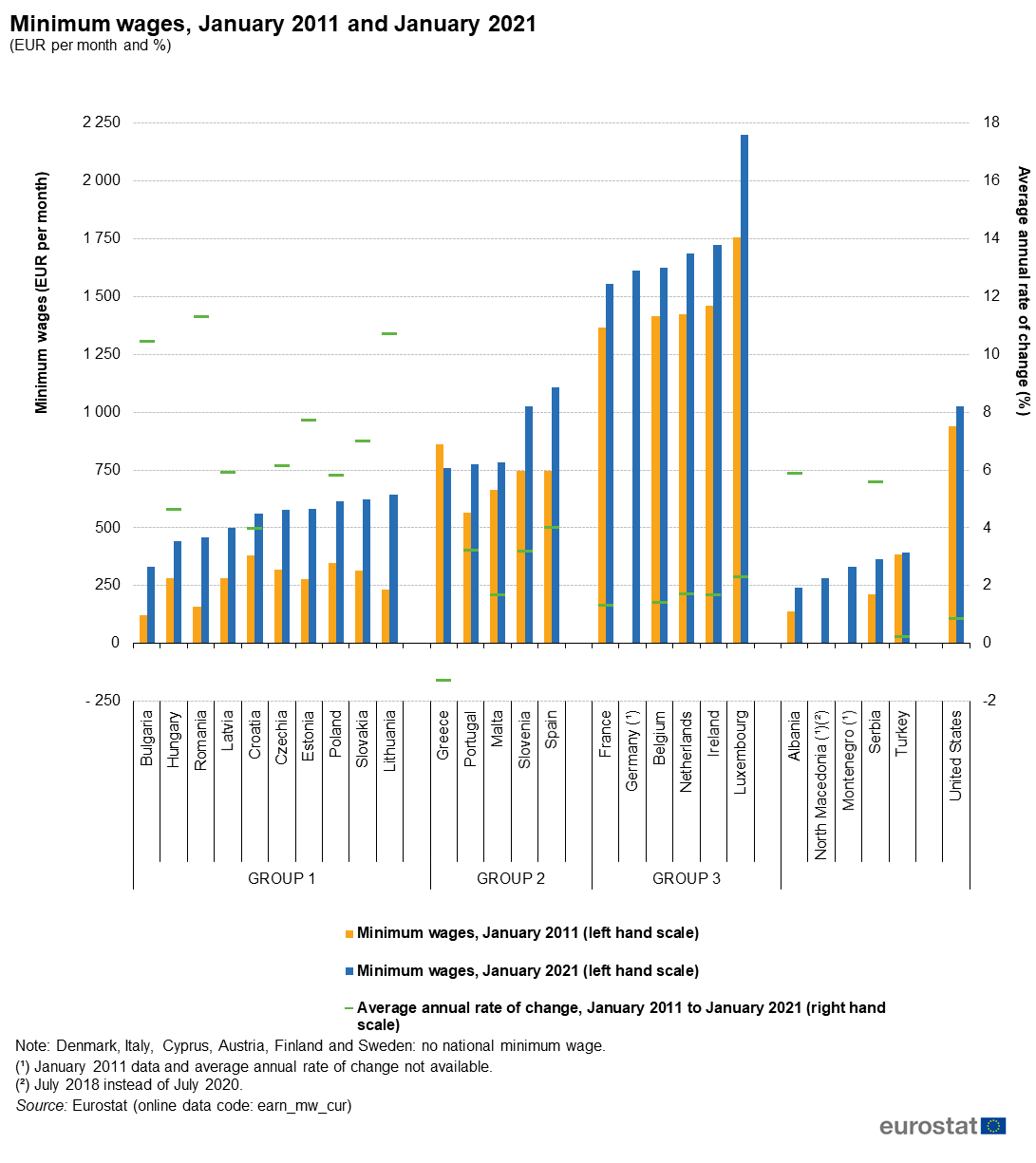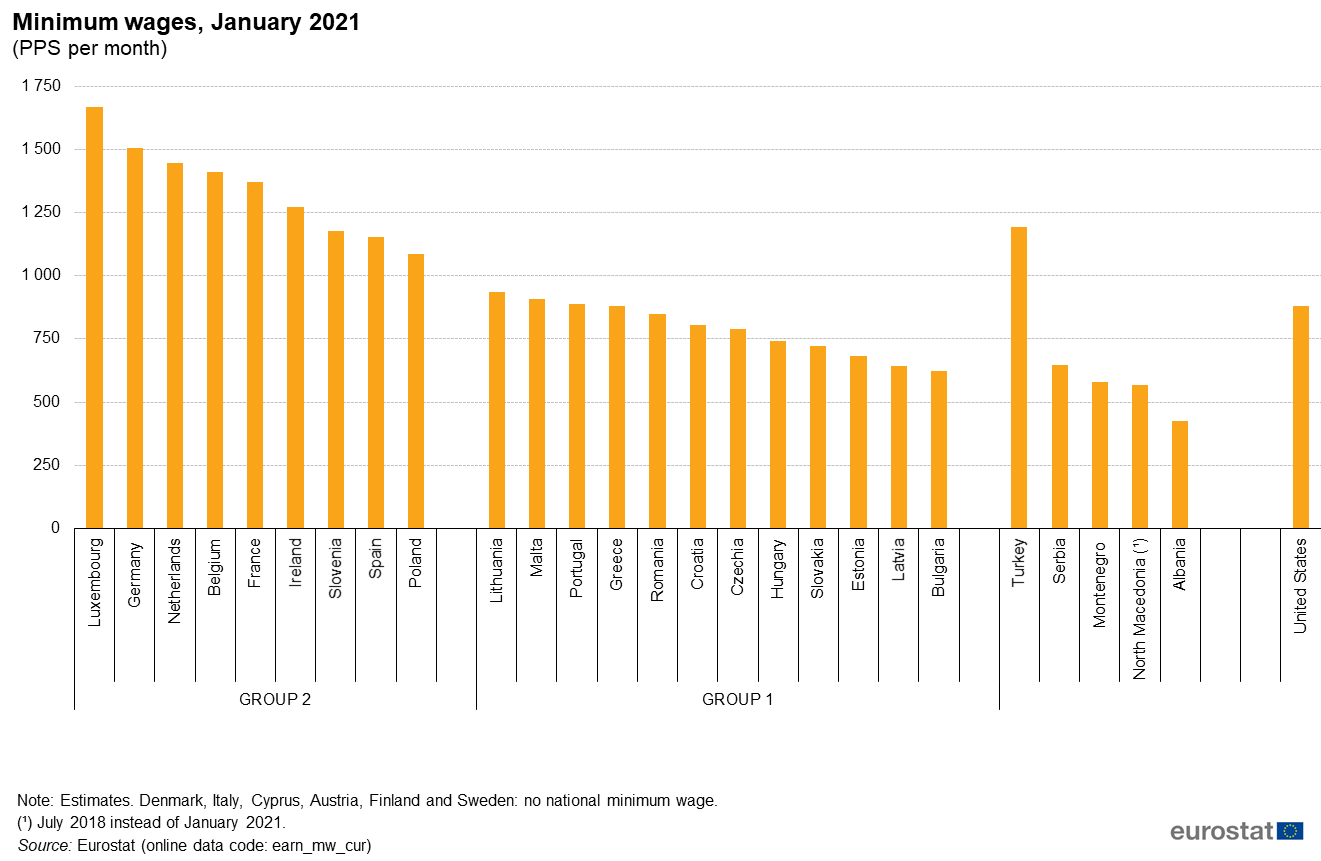Minimum wages are increasing faster in emerging Europe than anywhere else in the European Union. When the cost of living is taken into consideration, a minimum wage in Slovenia and Poland now offers more purchasing power than that in some western European countries.
While the countries of emerging Europe still pay the lowest minimum wages in the European Union, there is increasing evidence that the region is fast moving up the value chain, marked by statistically significant increases over the past decade.
Furthermore, when wages are adjusted for the cost of living the difference between the EU’s western, and central and eastern states, becomes far less pronounced.
- Education, not just wages, contribute to emerging Europe’s medical brain drain
- EU minimum wage proposal should make sure workers in the east ‘get their fair share’
- Slovenia has the highest social mobility in emerging Europe
According to a new survey from Eurostat, the statistical office of the European Union, the highest minimum wage in emerging Europe is paid in Slovenia. As of January 2021, the minimum wage in the country was 1,024 euros, far higher than the second ranked emerging Europe country, Lithuania, where the minimum wage is 642 euros.
At the other end of the spectrum, Bulgaria has the lowest minimum wage of all emerging Europe’s EU members at 332 euros, which is lower even than non-EU member Serbia, where the minimum wage is 366 euros.

When merely comparing gross amounts, the minimum wage in Bulgaria is 6.6 times lower than that earnt by the lowest paid in Luxembourg (2,202 euros).
However, when the cost of living and purchasing power (PPS) across the EU are taken into account, the differences fall considerably.
Indeed, when Bulgaria (623 PPS units) and Luxembourg (1,668 PPS units) are compared on these terms, the difference between the two countries falls sharply to just 2.2, although workers in Bulgaria remain the worse off of anywhere in the EU.
This is not the case for Poland, however.
While the minimum wage in the country is one of the lowest in the EU, at 614 euros, when PPS is taken into consideration the country jumps considerably. Its PPS score is 1,084, meaning that Poles on the minimum wage can purchase more than their counterparts in Malta, Portugal and Greece, and more than any country in emerging Europe with the exception of Slovenia.

While the data showing that minimum wages remain lower in CEE and the Western Balkans than in Western Europe is not surprising, the report also notes statically significant increases in many of the region’s countries between January 2011 and January 2021.
Romania had the highest annual rate of change at 11.3 per cent, followed by Lithuania at 10.7 per cent and Bulgaria at 10.4 per cent. Estonia (7.7 per cent), Slovakia (7.0 per cent) and Czechia (6.1 per cent) also recorded significant increases.
Unlike many news and information platforms, Emerging Europe is free to read, and always will be. There is no paywall here. We are independent, not affiliated with nor representing any political party or business organisation. We want the very best for emerging Europe, nothing more, nothing less. Your support will help us continue to spread the word about this amazing region.
You can contribute here. Thank you.







Add Comment